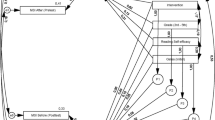Abstract
There is a heightened understanding that metacognition and strategy use are crucial to deep, long-lasting comprehension and learning, but their assessment is challenging. First, students’ judgments of what their abilities and habits and measurements of their performance often do not match. Second, students tend to learn and comprehend differently depending on the subject matter, contexts, goals, and tasks. As a consequence, a student may appear to use deep, reflective strategies in one situation, and fail to do so in other circumstances. Third, it is generally assumed that strategy use (metacognition, metacomprehension) are separable constructs from the underlying skills germane to the target task. The studies described in this issue draw attention to the potential challenges to developing a pure (separable) measure of strategy use that is also reliable, valid, and contextualized.

Similar content being viewed by others
References
Baker, L. (1996). Social influences on metacognitive development in reading. In C. Cornoldi & J. Oakhill (Eds.), Reading comprehension difficulties (pp. 331–351). Hillsdale: Erlbaum.
Bransford, J. D., Brown, A. L., & Cocking, R. R. (Eds.). (2000). How people learn: Brain, mind, experience, and school. Washington: National Academies Press.
Graesser, A. C., Person, N. K., & Magliano, J. P. (1995). Collaborative dialogue patterns in naturalistic one-to-one tutoring. Applied Cognitive Psychology, 9, 495–522.
Graesser, A. C., McNamara, D. S., & VanLehn, K. (2005). Scaffolding deep comprehension strategies through Point & Query, AutoTutor, and iSTART. Educational Psychologist, 40, 225–234.
Kozminsky, E., & Kozminsky, L. (2001). How do general knowledge and reading strategies ability relate to reading comprehension of high school students at different educational levels. Journal of Research in Reading, 24, 187–204.
Magliano, J. P., Millis, K. K., Levinstein, I., Boonthum, C., & The RSAT Development Team (2011). Assessing comprehension during reading with the reading strategy assessment tool (RSAT).
McNamara, D. S. (Ed.). (2007). Reading comprehension strategies: Theory, interventions, and technologies. Mahwah: Erlbaum.
McNamara, D. S. (2010). Strategies to read and learn: overcoming learning by consumption. Medical Education, 44, 340–346.
McNamara, D. S., & Magliano, J. P. (2009a). Self-explanation and metacognition: The dynamics of reading. In J. D. Hacker, J. Dunlosky, & A. C. Graesser (Eds.), Handbook of metacognition in education (pp. 60–81). Mahwah: Erlbaum.
McNamara, D. S., & Magliano, J. P. (2009b). Toward a comprehensive model of comprehension. In B. Ross (Ed.), The psychology of learning and motivation (pp. 297–384). New York: Elsevier.
McNamara, D. S., Ozuru, Y., Best, R., & O’Reilly, T. (2007). The 4-pronged comprehension strategy framework. In D. S. McNamara (Ed.), Reading comprehension strategies: Theories, interventions, and technologies (pp. 465–496). Mahwah: Erlbaum.
Ozuru, Y., Best, R., Bell, C., Witherspoon, A., & McNamara, D. S. (2007). Influence of question format and text availability on assessment of expository text comprehension. Cognition & Instruction, 25, 399–438.
Van Hout-Wolters, B. H. A. M., Simons, P. R. J., & Volet, S. (2000). Active learning: Self-directed learning and independent work. In P. R. J. Simons, J. L. van der Linden, & T. M. Duffy (Eds.), New learning (pp. 21–37). Dordrecht: Kluwer.
Author information
Authors and Affiliations
Corresponding author
Rights and permissions
About this article
Cite this article
McNamara, D.S. Measuring deep, reflective comprehension and learning strategies: challenges and successes. Metacognition Learning 6, 195–203 (2011). https://doi.org/10.1007/s11409-011-9082-8
Received:
Accepted:
Published:
Issue Date:
DOI: https://doi.org/10.1007/s11409-011-9082-8




